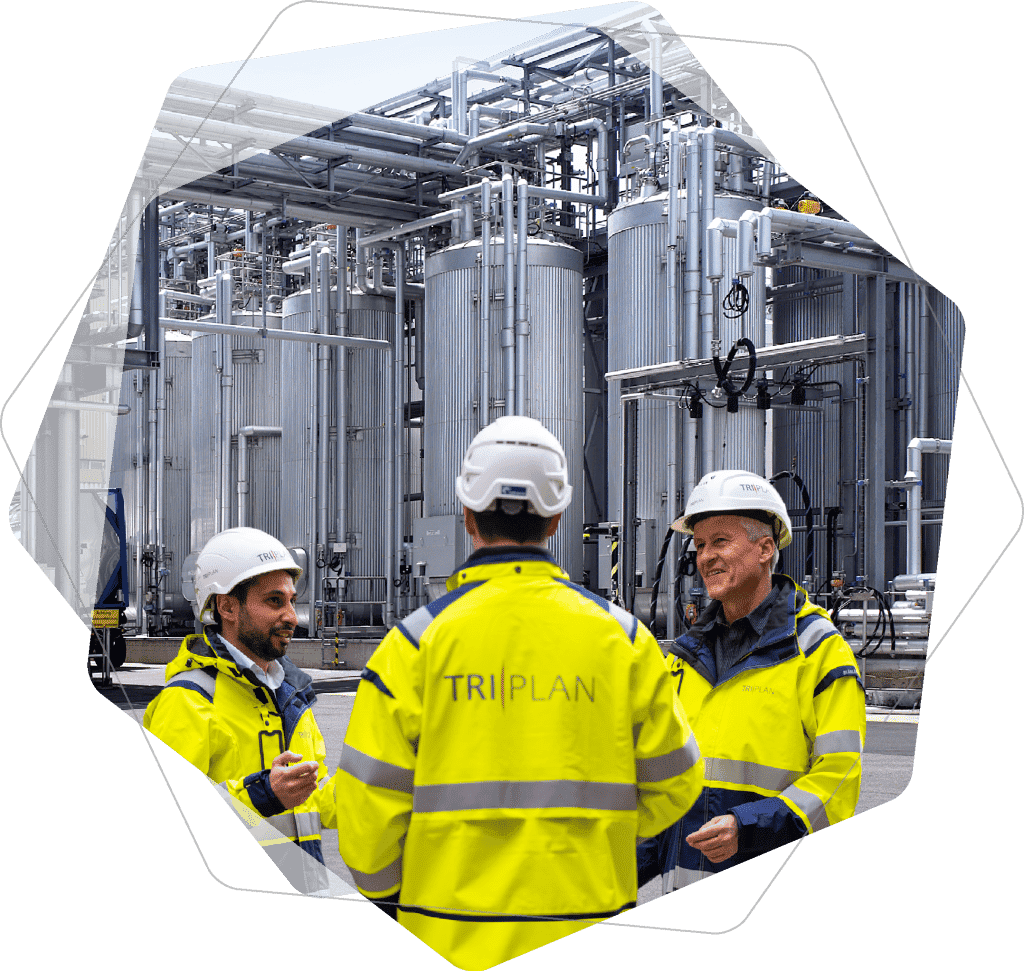Triplan with engineering for renewable energy production
With a team of experts in energy and resources and high engineering expertise, Triplan, subsidiary of TTP GROUP, responds to the trend of the chemical industry to increasingly invest in raw material research. Hedging raw material costs and supply has become a competitive advantage for chemical companies over their competitors, and this gives them more incentive to find alternatives to oil.

The integration of sustainability aspects in the project design of EPCM(V) projects is becoming increasingly critical in order to achieve the ambitious goals in the areas of climate protection and the UN Sustainable Development Goals. With a dedicated team of experts in energy and resources, Triplan’s Refinery division provides sustainable engineering along the entire value chain.
“It is our goal to implement fundamental solutions for sustainable production, as well as create facilities that have the lowest possible energy consumption and environmental impact, wastewater and air protection, and the highest possible stakeholder health and safety”, says Triplan CEO Martin Haase.
Triplan builds facilities that achieve ambitious energy efficiency and sustainability goals by using a workshop approach in which the company brings its extensive knowledge, develops strategies, and implements solutions with the client. It also emphasizes shortest payback periods and high benefits. Among the features of the offer are:
- Batch process optimization
- Energy and waste heat recovery
- Alternative cooling systems
- Passive/low energy building standards
- Photovoltaic systems
- Rainwater harvesting
- Building activation
- Geothermal systems
- Energy efficient engines

With rising energy prices and climate protection requirements growing, waste heat utilization is no longer only an issue for large international companies, but also for medium-sized ones. Triplan’s process expertise includes two major areas: direct waste heat utilization through heat exchangers or storage, and indirect waste heat utilization through heat pumps, chillers and power generation.
For instance, Triplan has developed an intelligent system that uses waste heat from refineries to reduce cooling requirements and supply district heating to an adjacent city.
Sectors that are particularly critical to safety, such as the petrochemical and chemical industry and, of course, refineries, often do not rely solely on the expertise of their service providers as clients, but also consciously ensure that certain safety and environmental protection measures are observed. This is not the only reason why Triplan Germany has been pursuing a new corporate policy since 2015/16 in order to establish verifiable KPIs with regard to business ethics, social responsibility (Corporate Social Responsibility) & determine sustainability.
It is common for safety-critical industries, such as the petrochemical and chemical industries, as well as refineries, as clients, to consciously comply with certain safety and environmental protection measures, rather than relying solely on the expertise of their service providers. As a result of this, Triplan Germany has already made a change in corporate policy starting in 2015/16 in order to establish verifiable KPI’s in terms of business ethics, social responsibility (Corporate Social Responsibility), and sustainability.
In 2016, Triplan underwent an external “TfS” (Together for Sustainability) audit by ECOVADIS and received “Silver” status. This was followed in 2017 and 2019 by an external “TfS” (Together for Sustainability) audit by the auditing company Intertek.
As part of Triplan OSHAS (Occupational Safety and Health Administration) management, Triplan Germany in Karlsruhe and Neustadt a.d. Donau was successfully recertified SCC (Safety Certificate Contractors) by TÜV. The SCC regulations are a combined management system for occupational safety, health and environmental protection. It originates from the German Scientific Society for Petroleum, Natural Gas and Coal (DGMK), of which Triplan is a member, and is based on German law.
In general, Triplan adheres to the following guidelines:
- UN Global Compact
- TfS (Together for Sustainability)
- OSHAS (Occupational Safety and Health Administration)
- SCC (Safety Certificate Contractors)
- Energy Audit according to EDL-G, EN 16246
- Corporate Social Responsibility (CSR)
- Environmental guideline
- Code of Conduct
Triplan is a member of TTP Group along with Pharmaplan. Within the group, all efforts are coordinated to integrate sustainability into daily office and project work – focusing on issues where TTP Group as engineering service provider can make a difference in the development of sustainable solutions – for the customers, for the company, for the planet.

